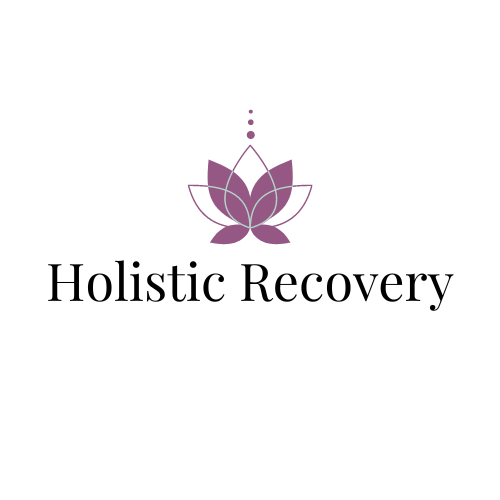
The Power of Mindfulness in Addiction Recovery: Finding Presence, Peace, and Self-Connection
Recovery is about more than just stopping harmful behaviors—it’s about rebuilding your relationship with yourself and your life. While detox, therapy, and peer support form the foundation of most recovery journeys, mindfulness is an increasingly valuable complement.
Mindfulness isn’t a quick fix. But over time, it can help reshape not just how you respond to stress and cravings, but how you relate to your thoughts, emotions, and body. In fact, research shows that regular mindfulness practice can support healing in the brain areas affected by addiction—restoring emotional balance, impulse control, and mental clarity.
Let’s explore what mindfulness is, and how it can support lasting recovery.
What Is Mindfulness?
At its simplest, mindfulness means paying attention to the present moment with openness and without judgment. It’s a way of observing your thoughts, feelings, physical sensations, and surroundings without needing to react or change anything.
Mindfulness invites you to:
Stay grounded in the present
Observe without rushing to judge or label
Cultivate awareness and acceptance of your inner experience
In recovery, this can mean the difference between reacting on autopilot and choosing a response aligned with your long-term wellbeing.
Why Mindfulness Matters in Recovery
1. It Helps Break the Cycle of Avoidance
Substance use often begins as a way to avoid difficult emotions or sensations. But the more we avoid, the more disconnected we become. Mindfulness gently encourages you to face discomfort with compassion and courage. When you learn to stay present with what’s happening—even when it’s uncomfortable—you begin to see that feelings are temporary and can be tolerated without needing to escape.
2. It Supports Emotional Regulation
Addiction can erode your ability to manage emotions. You might feel overwhelmed, irritable, anxious, or numb. Mindfulness helps you observe these emotional waves without getting swept away. Over time, this builds emotional intelligence—helping you respond with clarity rather than react impulsively.
3. It Strengthens Inner Calm
Recovery often brings internal turbulence—restlessness, guilt, or fear. Mindful practices like body scans, walking meditations, and breathwork offer moments of peace that reconnect you with calm, steady ground. These practices support nervous system regulation, which reduces stress and supports long-term sobriety.
4. It Restores Choice and Intention
Substance use often happens on autopilot. Mindfulness disrupts this pattern by restoring awareness and intention. Instead of acting on impulse, you learn to pause and make conscious decisions that support your recovery.
5. It Builds Self-Compassion
Addiction is often accompanied by shame, self-criticism, and isolation. Mindfulness nurtures a more compassionate inner dialogue. As you practice meeting your experiences with kindness, you begin to soften judgment and reconnect with your worth. This compassion also extends outward—supporting healthier relationships and community connections.
Mindfulness Is Brain Medicine
Repeated substance use alters brain regions responsible for decision-making, emotional regulation, and stress response. Mindfulness, as shown in neuroscience research, can help:
Calm the amygdala (the brain’s fear center)
Strengthen the prefrontal cortex (for reasoning and self-control)
Improve the brain’s ability to manage cravings, stress, and difficult emotions
In short, mindfulness doesn’t just change how you feel. It changes how your brain works—making recovery more sustainable.
How to Start Practicing Mindfulness in Recovery
You don’t need a meditation cushion or hours of free time to begin. Start small and be consistent.
Here are simple ways to begin:
Pause and breathe. Notice your breath at different points during the day. Even one minute of conscious breathing can bring you back to center.
Use your senses. Choose one activity—eating, walking, drinking tea—and do it with full attention. What do you see, hear, smell, taste, or feel?
Notice without judgment. When difficult thoughts or emotions arise, try saying, “This is here,” rather than trying to push it away or fix it.
Start where you are. There’s no perfect way to practice mindfulness. The goal isn’t to “do it right”—it’s to show up. Recovery and mindfulness both grow through repetition, not perfection.
Reconnecting with the Self Beneath the Struggle
Perhaps the most powerful gift of mindfulness is this: it reconnects you with the part of yourself that has never been broken. Beneath the habits, the pain, and the past is a calm, steady presence—your true self.
This awareness is not defined by addiction, mistakes, or labels. It’s the part of you that observes, breathes, and continues to show up—even when things feel hard.
Through mindfulness, you return to this self again and again. It’s a place of clarity, peace, and strength. A space within you that is affected by nothing, yet touches everything.
And from this place, healing becomes not just possible, but inevitable.
A More Intentional Way Forward
Recovery asks for patience, courage, and new ways of living. Mindfulness supports all three. It can help you regulate emotions, calm your body, focus your mind, and reconnect with meaning.
You deserve more than just sobriety—you deserve peace, purpose, and presence. And mindfulness can help guide you there.




